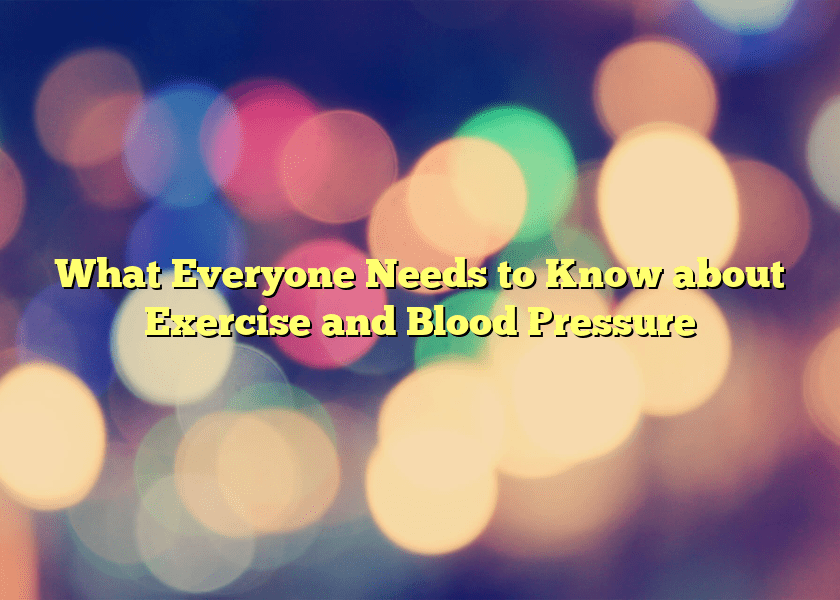What Everyone Needs to Know about Exercise and Blood Pressure
Although regular aerobic activity is important to the health and wellbeing of everyone, far too many people make the crucial mistake of assuming painful, strenuous workouts are the most productive way to exercise.
The startling fact is that moderate exercise – with the prime example being walking – may be an even more effective way to exercise, especially if you need to lower your blood pressure, and definitely if you’re just beginning your fitness program.
Before starting any new fitness program – especially if you haven’t exercised in a while or if you have medical problems – you should always consult your doctor first. Your doctor might even suggest you change some of your lifestyle habits such as your diet or medications in addition to starting an exercise program.
A doctor’s prior approval is especially important since some activities can cause your blood pressure to rise to potentially dangerous levels. Recent research shows that vigorous exercise in unfit individuals may actually be harmful and should be avoided unless tolerance to the exercise has been built up over a reasonable period of time.
On the other hand, numerous studies have proven people who exercise moderately and regularly are more likely to have blood pressures in the healthy ranges.
Different types of exercise obviously depend on your fitness levels, but cycling, walking, swimming, are excellent choices for starting a fitness program. For each of these options, you can easily control your work level and your progression so that you keep your blood pressure within a healthy range during the activity and eventually lower your resting blood pressure, too.
Progression is vital to the success of your fitness program. Start slowly so that your body has time to adjust and adapt. Remember, one of the main reasons people give up and quit new fitness programs after just a few weeks it that they try to work too hard, too soon.
If you decide to start a walking program, for example, start slowly by walking two or at most three times a week for ten to fifteen minutes at a time at a leisurely pace. Gradually increase either your pace or time each week. After a couple of months, you can increase the number of weekly sessions, too.
If you decide to join a health club, you should start with a qualified personal fitness professional who will take all medical history into account and help you design an appropriate fitness program.
Uncontrolled high blood pressure leads to many different medical problems such as stroke, coronary disease, and kidney disease, so it’s crucial you do everything you can to control your blood pressure. Gradual progression is the key to keeping your blood pressure under control, maintaining your weight loss, avoiding injury and ensuring long term success.
